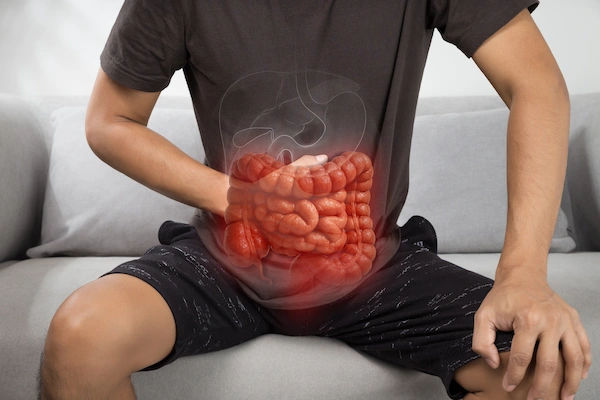Auto Brewery Syndrome: Signs, Causes, and How to Get Help
Auto Brewery Syndrome is a rare condition where your body produces alcohol internally. Learn the signs, causes, diagnosis methods, and how to seek proper treatment.

Written by Dr. Mohammed Kamran
Reviewed by Dr. Dhankecha Mayank Dineshbhai MBBS
Last updated on 13th Jan, 2026

Imagine feeling dizzy, slurring your speech, and failing a breathalyzer test without having a single alcoholic drink. This isn't a plot from a medical drama; it's the shocking reality for individuals living with Auto-Brewery Syndrome (ABS). This rare and often misunderstood metabolic disorder turns the digestive system into an internal brewery, fermenting carbohydrates into ethanol. This article delves deep into the strange world of ABS, unpacking its tell-tale signs, underlying causes, and the path to diagnosis and treatment. If you or someone you know experiences unexplained episodes of intoxication, understanding this syndrome is the first step toward reclaiming control and well-being.
What Exactly is Auto-Brewery Syndrome (ABS)?
Auto-Brewery Syndrome, also known as Gut Fermentation Syndrome, is a condition where ethanol is produced through endogenous fermentation by fungi or bacteria within the digestive system. Essentially, after a person consumes sugary or starchy foods, the microbes in their gut ferment these carbohydrates, producing alcohol that is then absorbed into the bloodstream.
The Science Behind Internal Fermentation
The human gut is home to trillions of microorganisms, collectively known as the gut microbiome. In a healthy state, this ecosystem is balanced. In ABS, an overgrowth of certain fungi—most commonly Candida albicans and other yeast species like Saccharomyces cerevisiae—disrupts this balance. These organisms act like tiny brewer's yeast, converting sugars into carbon dioxide and ethanol right inside the intestines or stomach.
A Rare but Debilitating Condition
While considered extremely rare, ABS can be profoundly debilitating. Cases have been documented in medical literature for decades, often emerging after a course of antibiotics that disrupts the natural gut flora, allowing yeast to proliferate unchecked. It can affect both men and women and has been reported in children and adults.
The Primary Signs and Symptoms of Auto-Brewery Syndrome
Recognising the signs of ABS is crucial, as they are frequently mistaken for other issues, including secret drinking or psychiatric disorders.
The Hallmark Sign: Unexplained Intoxication
The most defining symptom is episodes of apparent drunkenness without consuming any alcohol. This can include:
- Slurred speech
- Poor coordination and stumbling
- Euphoria or mood changes
- Impaired judgment
- Failing a breathalyzer test
Beyond the Buzz: Gastrointestinal and Neurological Symptoms
The effects of ABS extend far beyond mimicking intoxication. The constant internal production of alcohol and byproducts like acetaldehyde leads to a host of other issues.
Common Gastrointestinal Distress
- Chronic bloating and gas
- Irritable bowel syndrome (IBS)-like symptoms
- Nausea and acid reflux
- Altered bowel movements
Cognitive and Neurological Impacts
- Severe "hangover" symptoms: headaches, nausea, fatigue
- Brain fog, difficulty concentrating, and memory problems
- Chronic fatigue and low energy levels
- Anxiety and depression
The Social and Personal Toll of ABS
The unexplained nature of the symptoms often leads to severe social stigma, relationship strain, and professional difficulties. Individuals may be wrongly accused of alcoholism, leading to job loss, legal trouble (such as DUI arrests), and immense psychological distress.
Consult Top Specialists
What Causes Your Gut to Start Brewing?
ABS doesn't happen spontaneously. It's the result of a perfect storm of factors that disrupt the gut ecosystem.
The Key Culprit: Fungal Overgrowth (Candida & Yeast)
The primary engine of ABS is an overabundance of fermenting fungi. While Candida is a normal resident of the gut, certain triggers can cause it to grow out of control, transforming from a harmless yeast into a more invasive form that produces significant amounts of alcohol.
Underlying Risk Factors and Triggers
- Antibiotic Use: A major trigger. Antibiotics wipe out beneficial bacteria that normally keep yeast populations in check.
- High-Sugar/High-Carb Diet: Provides ample fuel for the yeast to ferment.
- Pre-existing Conditions: Individuals with diabetes, obesity, Crohn's disease, or short bowel syndrome may be at higher risk.
- Compromised Immune System: Allows for easier fungal overgrowth.
- Genetic Factors: Some people may have a genetic predisposition that affects how their liver metabolizes alcohol, making them more susceptible to its effects.
How is Auto-Brewery Syndrome Diagnosed?
Getting a diagnosis can be a long and frustrating journey due to the syndrome's rarity.
The Challenge of Getting a Correct Diagnosis
Many doctors are unfamiliar with ABS. Patients are often misdiagnosed with other conditions like lactose intolerance, gluten sensitivity, or psychiatric disorders. A key step is finding a gastroenterologist or infectious disease specialist who is knowledgeable about gut dysbiosis.
Common Diagnostic Tests and Procedures
- Patient History: A detailed diary of food intake and corresponding symptoms is vital.
- Breathalyzer Test: Used to confirm elevated blood alcohol levels after consuming a carbohydrate-rich meal.
- Glucose Challenge Test: Under medical supervision, the patient is given a measured dose of glucose, and their blood alcohol concentration is monitored over several hours. This test is the gold standard for diagnosis.
- Stool Analysis: To identify an overgrowth of fermenting yeast like Candida.
- Endoscopy: Sometimes used to take samples from the small intestine to identify the specific microbes responsible.
If you experience persistent, unexplained symptoms of intoxication, consult a doctor online with Apollo 24|7 for an initial evaluation and to discuss the possibility of these specialised tests.
Treatment and Management Strategies for ABS
Treatment is multifaceted, focusing on eliminating the yeast, changing the diet, and restoring gut health.
The First Line of Defense: Antifungal Medication
Doctors typically prescribe a course of antifungal medications (e.g., fluconazole, nystatin) to reduce the population of fermenting yeast in the gut. This is the crucial first step to stopping the internal alcohol production.
The Critical Role of Diet: Starving the Yeast
- Dietary change is not just supportive; it is a core treatment. A strict low-carbohydrate, low-sugar diet is essential to "starve" the yeast of its fuel.
- Avoid: Refined sugars, bread, pasta, potatoes, rice, and alcoholic beverages.
- Focus on: Non-starchy vegetables, proteins, healthy fats, and certain low-sugar fruits.
- Working with a dietitian is highly recommended to ensure nutritional needs are met while following this restrictive plan.
Rebuilding a Healthy Gut Microbiome
After reducing the yeast, the goal is to repopulate the gut with good bacteria.
Probiotics: Specific probiotic supplements can help restore a healthy bacterial balance.
Prebiotics: Once the yeast is under control, prebiotic fibers can help feed beneficial bacteria (though they must be introduced carefully).
When to Seek Professional Medical Advice
Do not attempt to self-diagnose or treat this condition. If you experience recurring episodes of dizziness, intoxication, brain fog, or chronic fatigue that seem linked to your meals, it is essential to seek professional help. If your condition does not improve after trying dietary changes on your own, book a physical visit to a doctor with Apollo24|7 for a comprehensive workup. Persistent symptoms could indicate ABS or another serious underlying gastrointestinal or metabolic disorder.
Conclusion
Living with Auto-Brewery Syndrome can feel isolating and overwhelming, but it is a manageable condition. The path to recovery involves a correct diagnosis, a targeted treatment plan involving medication and significant dietary shifts, and a commitment to rebuilding gut health. By understanding the signs and causes, individuals can advocate for themselves within the healthcare system and find effective strategies to stop the internal fermentation process. Remember, your symptoms have a real, physiological cause, and with the right medical guidance, you can regain control and return to a normal, healthy life.
Consult Top Specialists
Consult Top Specialists

Dr. Vivek D
General Physician
4 Years • MBBS
Bengaluru
PRESTIGE SHANTHINIKETAN - SOCIETY CLINIC, Bengaluru

Dr Syed Mateen Pasha
General Physician
2 Years • MBBS
Bengaluru
PRESTIGE SHANTHINIKETAN - SOCIETY CLINIC, Bengaluru

Dr. Syed Ismail Ali
General Practitioner
7 Years • MBBS
Hyderabad
Apollo 24|7 Clinic, Hyderabad

Dr. Harshendra Jaiswal
General Physician/ Internal Medicine Specialist
12 Years • MBBS , MD (General medicine)
Kolkata
108 DHANA DHANVANTARI Clinic, Kolkata
(25+ Patients)
Dr. Thandra Ramoji Babu
General Physician/ Internal Medicine Specialist
5 Years • MBBS, DNB(General Medicine)
Warangal
Sai Ram multi-specialty hospital, Warangal
Consult Top Specialists

Dr. Vivek D
General Physician
4 Years • MBBS
Bengaluru
PRESTIGE SHANTHINIKETAN - SOCIETY CLINIC, Bengaluru

Dr Syed Mateen Pasha
General Physician
2 Years • MBBS
Bengaluru
PRESTIGE SHANTHINIKETAN - SOCIETY CLINIC, Bengaluru

Dr. Syed Ismail Ali
General Practitioner
7 Years • MBBS
Hyderabad
Apollo 24|7 Clinic, Hyderabad

Dr. Harshendra Jaiswal
General Physician/ Internal Medicine Specialist
12 Years • MBBS , MD (General medicine)
Kolkata
108 DHANA DHANVANTARI Clinic, Kolkata
(25+ Patients)
Dr. Thandra Ramoji Babu
General Physician/ Internal Medicine Specialist
5 Years • MBBS, DNB(General Medicine)
Warangal
Sai Ram multi-specialty hospital, Warangal
More articles from Gastrointestinal Disorders
Frequently Asked Questions
Can Auto-Brewery Syndrome be cured?
For many patients, ABS can be effectively managed into remission through a combination of antifungal treatment and long-term dietary changes. It often requires ongoing vigilance with diet to prevent a recurrence of yeast overgrowth.
What foods should I avoid with auto brewery syndrome?
The primary goal is to avoid foods that feed yeast. This includes all sugary foods and drinks, refined carbohydrates (white bread, pasta, rice), starchy vegetables (potatoes, corn), and fermented foods and beverages (including alcohol itself).
Is auto brewery syndrome a mental illness?
No, ABS is a physiological, metabolic disorder. However, the unexplained neurological and psychological symptoms like brain fog, anxiety, and mood swings, along with the social stigma, can lead to misdiagnosis as a psychiatric condition.
How do you test for gut fermentation syndrome at home?
While not a substitute for a medical diagnosis, keeping a detailed food and symptom diary can provide clues. Note any episodes of dizziness or fatigue that occur after high-carb meals. However, definitive testing like a supervised glucose challenge test must be done in a clinical setting for safety and accuracy. Apollo24|7 offers convenient home collection for tests like HbA1c (which can monitor blood sugar levels related to diet), but specific ABS testing requires specialist supervision.
Can children get auto brewery syndrome?
Yes, although rare, cases of ABS have been reported in children. It often presents with symptoms like unexplained lethargy, behavioural changes, and learning difficulties in school, in addition to gastrointestinal complaints.



